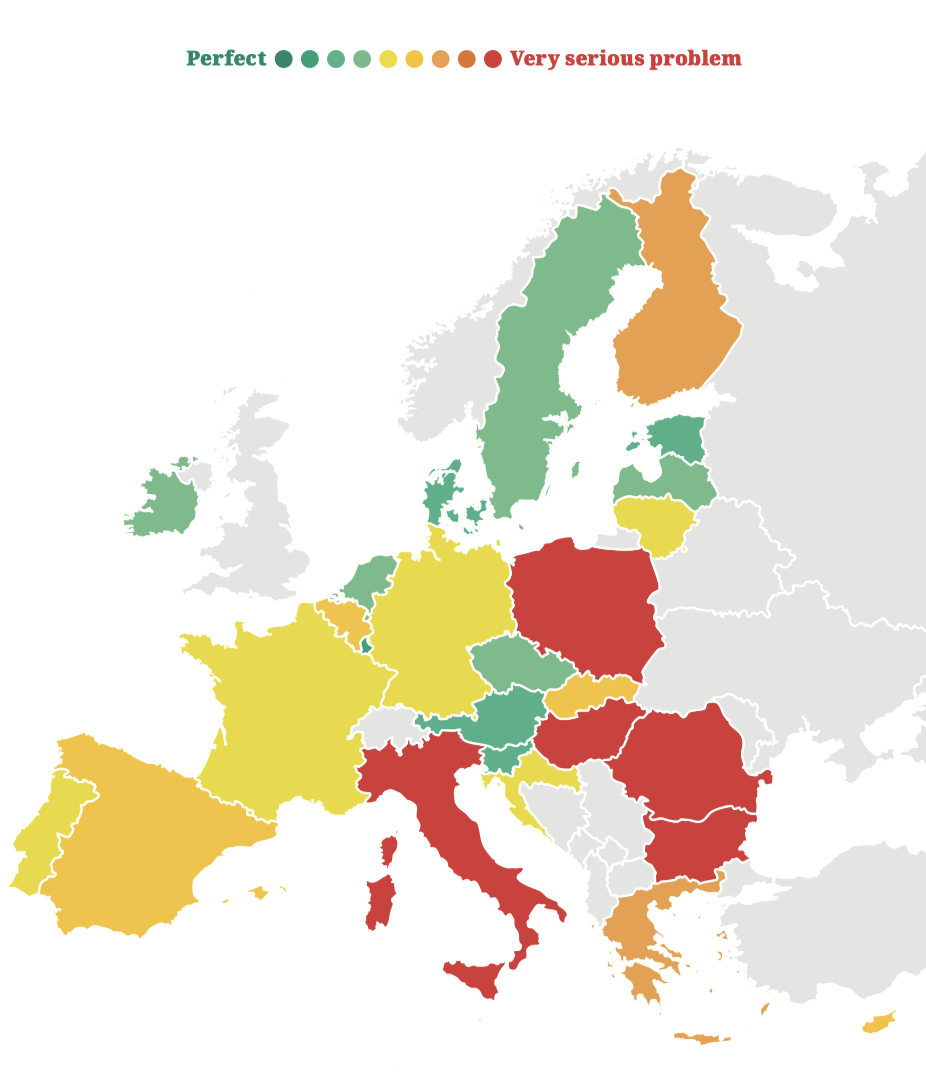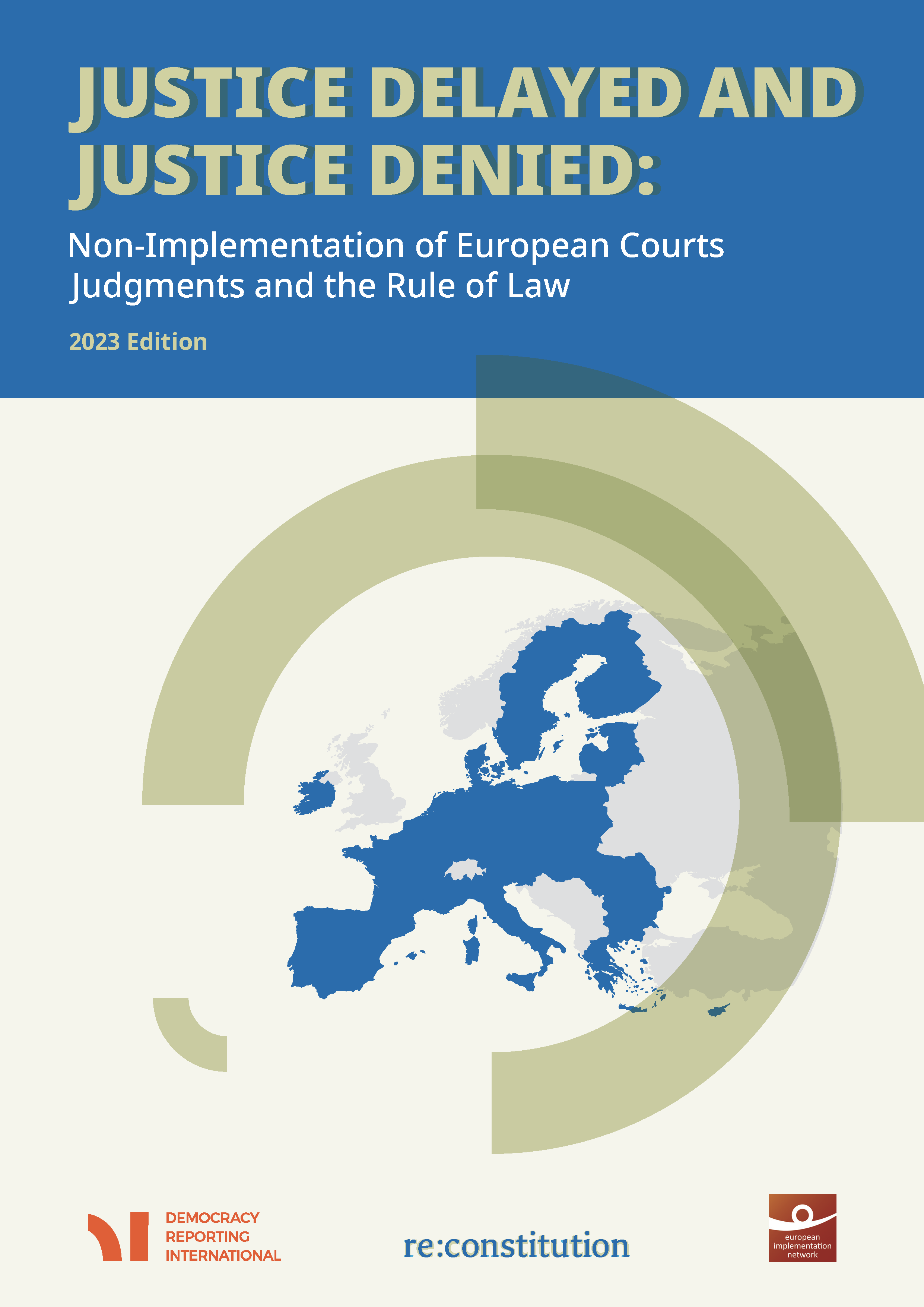In recent years, the growing attacks on the rule of law and other fundamental European values have sparked significant concerns. In response, the EU has introduced policy measures and taken states to court to combat this trend. However, several countries keep disregarding the decisions of the European courts entrusted with safeguarding human rights and EU values across the region.
Democracy Reporting International (DRI) and the European Implementation Network (EIN) have examined the issue of non-implementation of judgements from the European Court of Human Rights (ECtHR) and the Court of Justice of the European Union (CJEU) by multiple EU member states in the report “Justice Delayed, Justice Denied – 2023 Edition”. Find the full report below.
Key Findings
- Approximately 40 percent of leading ECtHR judgments related to EU states over the past decade have not been implemented. Each of these “leading” judgments (as termed by the Council of Europe) addresses significant or structural issues in the laws or practices of states, directly impacting numerous citizens.
- The non-implementation problem extends throughout the continent, with Bulgaria, Finland, Hungary, Italy, Poland, Romania, Slovakia, and Spain all failing to implement over 50 percent of leading ECtHR decisions from the last decade.
- The worst-performing state is Hungary, where an astonishing 76 percent of ECtHR leading rulings from the past ten years remain unimplemented.
- Overall, 616 leading ECtHR judgments on EU states are pending implementation.
- Luxemburg, Austria, Denmark, Estonia and Slovenia are the top five states when it comes to the level of compliance with ECtHR rulings.
- Hungary, Poland, and Romania are the countries with the largest number of unimplemented CJEU rulings
- With the CJEU increasingly focused on rule of law issues, a few alarming trends have appeared; among them, the refusal to comply with its rulings, sham or partial compliance that fails to address systemic issues, and a protracted failure to make institutional arrangements EU law-compliant.
(Non) Implementation of ECtHR Rulings by Member States
Here’s an overview of the (non) implementation of leading cases from the ECtHR by all Member States.

A Call to Action for the EU Institutions
Strikingly, the countries with the highest rates of non-implementation – Bulgaria, Hungary, Italy, Poland, and Romania – also grapple with broader and systemic rule of law issues, including attacks on the independence of the judiciary and other oversight institutions.
DRI and EIN urge states to fulfil their legal obligations and comply with any outstanding judgments, thereby protecting the rule of law and safeguarding EU values.
They also call on the European Commission to address this issue fully in its upcoming 2023 Rule of Law Report, and press the worst offending states towards full implementation through targeted recommendations, infringement procedures and financial pressure.
Launch event
DRI and EIN organised a launch discussion with a presentation of the report’s findings and recommendations, followed by a moderated panel debate on how the EU and the Council of Europe can cooperate better on enforcing the implementation of the judgements of the two European courts. The panel also explored concrete examples from national cases and the debate closed with a Q&A session. You can watch the discussion below and find more information here.

